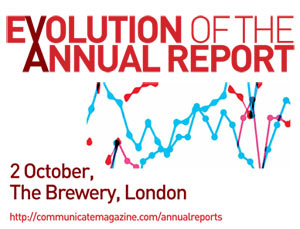 Someone, I forget who, asked me recently “Do you think that CSR in companies has now come so far that it can be absorbed into mainstream business reporting?”
Someone, I forget who, asked me recently “Do you think that CSR in companies has now come so far that it can be absorbed into mainstream business reporting?”
I think I stared a little, slack-jawed at the idea companies had embraced CSR and sustainability en-masse. It would be nice to have this cynicism proved wrong … unfortunately it has been proved right.
Lundquist, an Italian communications consultancy, has released its 2009 report on corporate website CSR content (specifically excluding CSR reports). It’s not pretty reading; in fact The Guardian has called the report “damning”.
(You can read the report’s executive summary at the bottom of this post).
The websites surveyed are all members of the Dow Jones Sustainability Index, supposedly world leaders in CSR. Here are three titbits from the report:
- over a third either have no CSR contact details, no refreshable content on CSR (such as news stories) or no value-added content (such as an FAQ or glossary)
- over half publish no CSR targets whatsoever
- less than half describe an environmental management system
The staggering conclusion has to be that the world’s leading companies are being horrendously slack about CSR. But is this fair?
No Excuses For Poor CSR Websites
An interesting subtlety in the Lundquist report is that by and large the companies surveyed haven’t grasped the way the internet makes communication more immediate and interactive.
For example, Lundquist sent a fake email to the companies inquiring about sustainable investment in the company. Over half failed to reply. Similarly, a significant proportion of the websites don’t have any video or forum content.
It’s not that these companies are particularly lax, it’s that they’re
stuck in an ‘offline’ communications mode where priority is given to … a form of one-way disclosure where companies feel they simply have an obligation to inform stakeholders of what is going on
The trouble is, even in this one-way communication model companies with something to trumpet tend to let the world know about it.
The fact that they don’t mention CSR targets, news or analysis can only lead to the conclusion that they have no targets, news or analysis to share.
Not Just A CSR Website, A Sustainable Business Model Too
There is one small crumb of comfort to be taken from the Lundquist report: most companies scored well in at least one area, be that human resources, environment, SRI or whatever. The report describes this as:
a situation where there were many individual areas of excellence (companies scoring highly in certain areas) but few companies were excellent in many areas
One can only hope that Raudasa’s “Broken Windows and CSR” theory is correct and “once the organisation starts developing CSR strategy it eventually transcends itself into everything that’s being done”.
Companies such as Marks and Spencer, for whom sustainability is the business model, are few and far between. We need more like them, more who are prepared to bare their soul on their website in an interactive and transparent manner.
Unfortunately, Marks and Spencer are too small to have been included in the Lundquist survey. However, they and Lundquist prove a valuable point to the companies surveyed:
It’s time the so-called leaders stepped up to the plate and did something, before they’re put to shame by those who understand CSR and become the leading businesses of the future.
Picture Credit: Shock and awe by James Jordon on flickr under Creative Commons Attribution No Derivatives License.
A former CTO, Chris has a broad and varied background. He’s been involved with blue chips, consultancies & SMEs across a wide variety of sectors and has worked in Europe, the Middle East and Australia.
In 2007 he decided to combine his knowledge of business and IT with his passion for all things sustainable and has been busy writing ever since. However, his greatest ambition remains to brew the perfect cup of coffee.


